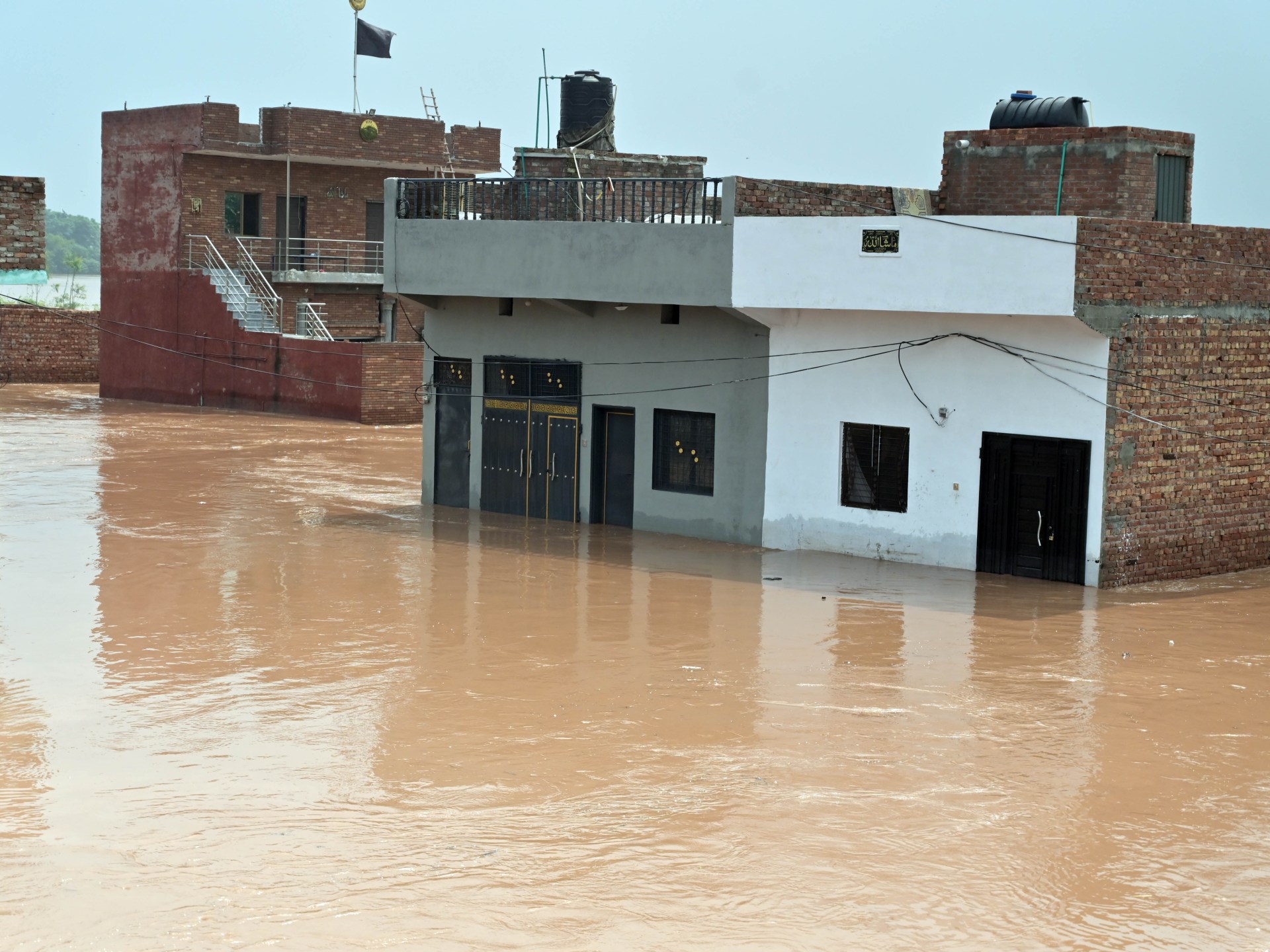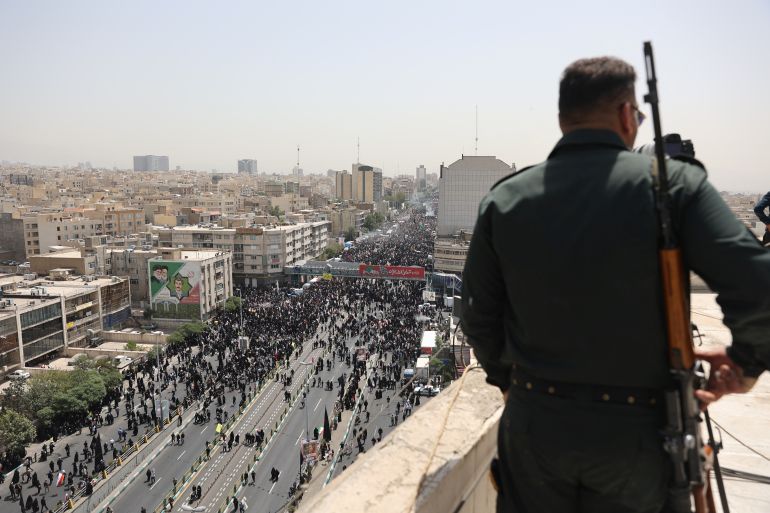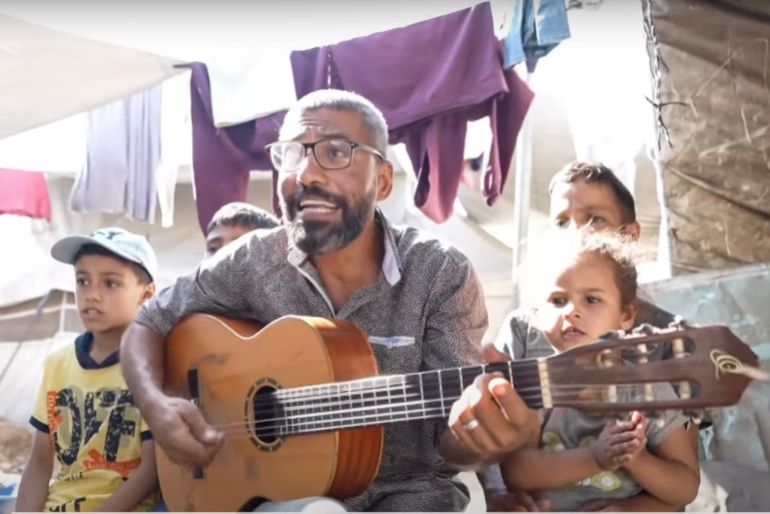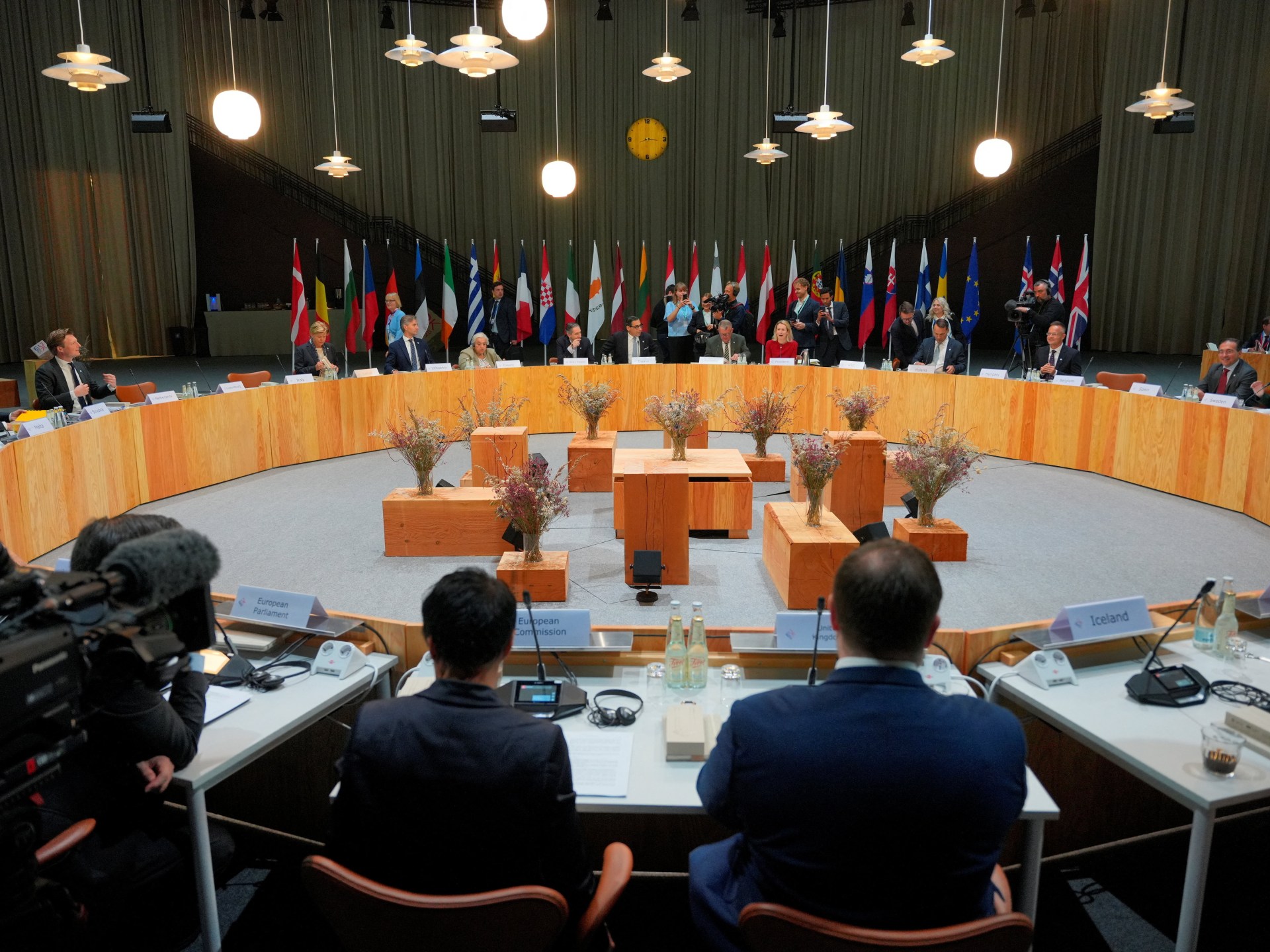Winter is approaching in the United States and COVID-19 cases are rising. Questions about accessing protective vaccines are swirling.
Nearly five years since the first US patient was vaccinated to help stem what was then a raging coronavirus pandemic, doctors, patients and pharmacists are navigating a radically different public health landscape.
The US Food and Drug Administration (FDA) on August 27 announced it had approved some COVID-19 vaccines – but for far fewer people than in years past.
If you tried to schedule a COVID-19 vaccine this week, your pharmacy’s online scheduler might have told you it isn’t available yet.
Meanwhile, leading medical organisations disagree with the government’s latest COVID-19 vaccine guidance.
If all that leaves you wondering about your ability to get a COVID-19 shot, you’re not alone. It’s confusing.
We sought answers.
Q: Who can get a COVID-19 vaccine?
First, what we do know: The FDA approved the 2025-26 vaccines for anyone age 65 and older and any person six months and older who has at least one underlying health condition that increases their risk of severe COVID-19 infection.
So, people in those groups should be able to schedule vaccinations as soon as healthcare providers who are authorised to administer the vaccine receive it – likely in the next few weeks.
Q: I don’t fit into those categories. Am I banned from getting a COVID-19 vaccine?
Not “banned”, per se. But it may require more legwork on your end. You’ll need to consult your doctor, who can legally prescribe a COVID-19 vaccine for you even if you don’t fall within the categories the FDA specified.
“Physicians can prescribe medications and vaccines that are beyond the label, beyond the licence,” said Dr William Schaffner, Vanderbilt University Medical Center professor of infectious diseases.
That’s true for adults and children – and the practice of prescribing medications and vaccines for “off-label” use is fairly common in paediatrics, he said.
Q: OK, so will insurance still cover COVID-19 vaccinations under these new rules?
If you’re in one of the two FDA-approved categories, the outlook is probably better than if you’re not.
Federal law requires that most health insurance plans fully cover vaccines recommended by the US Centers for Disease Control and Prevention and its vaccine advisory committee.
Here’s the rub: Because the CDC hasn’t yet adopted 2025-26 COVID-19 vaccine recommendations, whether the shots will be covered by insurance is a grey area.
The CDC’s panel of experts, the Advisory Committee on Immunisation Practices (ACIP), had planned to vote on updated COVID-19 vaccine recommendations at its June meeting, but did not. And it’s unclear when or if the ACIP will vote on the recommendations.
But there could be another avenue for people to get insurance-covered COVID-19 vaccines. The CDC’s vaccine recommendations typically include a provision for what’s known as “shared clinical decision making”, Schaffner said.
That means, for example, “If you were 52 years old and otherwise healthy, but you nonetheless wanted to get the vaccine, you could discuss that with your doctor – shared clinical decision-making – and you could receive the vaccine, and insurance companies would honour that,” he said.
That provision could be important for healthy people who want to avoid COVID-19 infection because they are close contacts with or care for people with high-risk conditions.
But again, without CDC recommendations, “We don’t know if that provision is still there,” Schaffner said.
To confirm whether your insurance will cover your COVID-19 shot, Schaffner recommends talking to your doctor and, potentially, your insurance provider. But first, give it a little more time: healthcare providers themselves are still working out the details.
Q: If my insurance doesn’t cover vaccination, how much might it cost?
Vaccine manufacturers report that COVID-19 vaccines cost about $142, according to the CDC’s price lists. It’s unclear whether that would be the out-of-pocket cost for patients receiving a COVID-19 vaccine not covered by insurance.
Q: Are COVID-19 vaccines still recommended during pregnancy? And if I’m pregnant and want one, what can I do?
Health and Human Services Secretary Robert F Kennedy Jr in May announced he had unilaterally removed COVID-19 vaccines from the recommended immunisation schedule for healthy children and pregnant women. The health-focused news outlet STAT reported that no one from the CDC or ACIP was consulted before Kennedy announced this change. Vaccine experts called the move concerning and unprecedented.
Removing the vaccines from the immunisation schedule could limit vaccine access by reducing insurance companies’ coverage of the shot. But again, by consulting with your doctor, you might still be able to access it. Some pharmacies also might be able to provide it, because the CDC lists pregnancy as a factor that increases the risk of severe COVID-19 infection.
Q: Is there anyone who should not get the COVID-19 shot?
Broad health guidance always comes with exceptions. For example, people who have had “a very severe adverse reaction to a previous COVID-19 vaccine” should not get this season’s version, Schaffner said. You should discuss your health situation with your physician for personalised guidance.
Q: Why is the outlook for COVID-19 vaccines so different this year?
In short, Kennedy has long been broadly critical of vaccinations and, now that he’s in charge of the nation’s healthcare policy, has taken actions to overhaul their regulation and distribution.
Typically, the CDC recommends vaccines based on guidance from ACIP. ACIP’s recommendations become CDC policy if they’re adopted by the CDC director. This year, Kennedy fired all 17 members of ACIP and replaced them with new members, many of whom have expressed anti-vaccine views. CDC Director Susan Monarez was fired on August 27 amid a dispute with Kennedy over vaccine policy.
In previous years, the CDC recommended annual COVID-19 vaccines for everyone aged six months and older. The committee still hasn’t issued COVID-19 vaccine recommendations for this year.
Q: Aren’t there some medical organisations that recommend COVID-19 vaccinations for most people, though?
Yes. In recent months, professional organisations have issued their own recommendations that contradict new messaging from the federal government.
The American Academy of Pediatrics recommends routine COVID-19 vaccines for all children aged six months to 23 months and for children aged two to 18 in some situations, including if they’re at high risk of COVID-19, have never been vaccinated against it or live in a household with people who are high risk.
And the American College of Obstetricians and Gynecologists recommends that anyone pregnant or lactating receive updated or “booster” COVID-19 vaccines.
Dr Tina Tan, president of the Infectious Disease Society of America, said the FDA’s decision to limit the COVID-19 vaccine’s approval “contradicts the evidence base, severely undermines trust in science-driven policy and dangerously limits vaccine access”.
Q: What qualifies as an underlying health condition that puts someone at higher risk?
The FDA and HHS did not point us to a list of health conditions that meet the high-risk requirements.
The CDC’s website catalogues a number of underlying conditions that it said demonstrate “a conclusive increase in risk for at least one severe COVID-19 outcome”. They included: chronic lung diseases, cancer, certain chronic kidney and liver diseases, diabetes, some disabilities, heart conditions, HIV, physical inactivity, primary immunodeficiencies and some mental health conditions.
Q: But I clicked on those lists and both say ‘pregnancy and recent pregnancy’ are risk factors. How do I square that with the latest changes?
You’re right. These lists are inconsistent with the messaging coming from top HHS officials. Again, the American College of Obstetricians and Gynecologists continues to recommend COVID-19 vaccines for people who are pregnant and lactating. Talk to your doctor.
Q: Is this season’s COVID-19 vaccine formula different from last season’s?
Yes. After the FDA passed its recommendations to vaccine manufacturers in May, the COVID-19 vaccines were updated to target the viral strain expected to circulate this year. The changes align with the World Health Organization’s recommendations.
Q: When will the updated COVID-19 shots be available?
Since the FDA’s approval, updated vaccines are set to start shipping immediately and might even be available now in some pharmacies. Pfizer said it was shipping immediately and would be available across the US “in the coming days”. Sanofi, the company distributing the Novavax non-mRNA vaccines, said its vaccine should be available “in the early fall”.
But what that means for how quickly you can access it could depend on where you live, your age and your health. (See next question.)
Q: Where can I get the updated COVID-19 shots?
We knew you were going to ask. And we wish we had a straightforward answer.
If you typically get your COVID-19 shots at a local pharmacy, it might not be that easy this year.
As of August 29, the scheduling apps for Walgreens and CVS notified patients in some locations that they could not schedule a COVID-19 vaccine appointment because of state restrictions, inventory or the need for a prescription.
In 18 states and Washington, DC, pharmacists’ authority to administer vaccines is linked to the CDC’s recommendations, said Brigid Groves, the American Pharmacists Association’s vice president of professional affairs. The states are: Colorado, Connecticut, Georgia, Iowa, Kentucky, Maine, Maryland, Massachusetts, Montana, Nevada, New Jersey, New Mexico, North Carolina, Oregon, Pennsylvania, South Carolina, Virginia and West Virginia.
That means even though the FDA has issued its approval, in those 19 places, pharmacists cannot administer it because it isn’t on the CDC immunisation schedule yet, Groves said.
The American Pharmacists Association has asked those states’ governors to issue executive orders granting pharmacists broader authority to administer vaccines.
In the other 32 states, with some exceptions, it’s possible that a pharmacy can administer the updated COVID-19 shots for patients who fall within the FDA-approved categories of recipients.
If you are getting it “off label”, however, because you don’t have one of those underlying conditions, you might need to get it straight from your prescribing doctor.
One caveat: if ACIP votes on recommendations for COVID-19 vaccines that include giving them to healthy people through the “shared clinical decision making” process, Groves said pharmacists would be able to vaccinate almost anyone. That’s because pharmacists are considered clinicians who can conduct that shared decision-making.
Q: When might ACIP vote on COVID-19 vaccine recommendations?
The committee has a September 18-19 meeting scheduled, according to the CDC’s website. A meeting agenda hasn’t been published yet.
Q: How will a pharmacy know if I have an underlying condition?
Typically, pharmacies ask patients to self-attest whether they have an underlying condition, Groves said. For example, a person who is under age 65 but has severe asthma would self-attest to that when making a vaccine appointment. So far, all signs point to that self-attestation still being the case.
Q: When is the best time to get vaccinated?
During fall and winter months, when COVID-19 infections are typically expected to spike alongside other respiratory infections.
Q: What do the administration’s vaccine changes mean for future COVID-19 vaccines?
Kennedy recently cancelled $500m in funding for mRNA vaccine development. Two of the most effective COVID-19 vaccines are mRNA. Some companies had been researching combined mRNA flu and COVID-19 shots, and those projects’ status is unclear.
The FDA also recently announced that vaccine makers seeking approval for future COVID-19 vaccines, or boosters, would need to conduct new randomised clinical trials of healthy populations. That move, combined with the decision to narrow the FDA’s vaccine approval for certain segments of the population, is expected to limit COVID-19 vaccine access.





